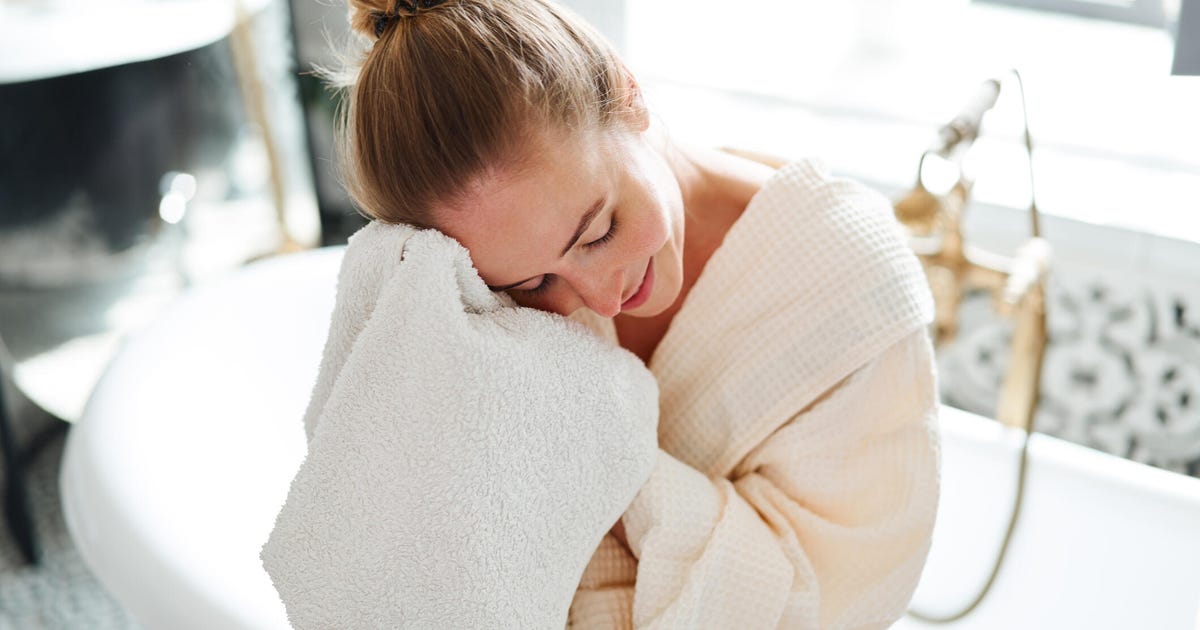Showering Before Bed? Try These 2 Things for Better Sleep
What if I told you that the solution to falling asleep more easily has been under your nose the whole time? That’s right, look no further than your bathroom. Studies suggest that taking a shower or bath before bed can help you drift off quicker.
I swear by night showers, though I should caution that not just any old shower will do. There’s a right way to do it. The magic behind bedtime showers involves the body’s circadian rhythm and thermoregulation process. To tap into this sleep hack, you must remember the two main pieces of the puzzle — temperature and timing. Essentially, you have to take it at the right time and right temperature.
Here’s how to use your nightly shower to benefit your sleep.
Shower in warm water, not hot

Your body relies on thermoregulation to regulate your circadian rhythm, also known as your sleep-wake cycle. Your internal body temperature signals to the brain that it’s time to fall asleep. Now, we’re not talking about drastic changes in body temperature — it’s only one to two degrees.
Showering helps the process along. While in the warm water, your body temperature rises and your blood flow is stimulated, but the increased blood circulation helps heat escape your body quicker. This allows your temperature to drop after you get out.
Once your body temperature is lowered, it signals to your brain that it’s time to hit the sheets. Studies say to keep your water temperature between 104 to 109 degrees Fahrenheit for the best quality sleep. We know that most people can’t perfectly regulate their shower temperature. A good rule of thumb is warm water — not too hot or too cold.
Showers at extreme temperatures aren’t a bad habit to have — in fact, both hot and cold showers have their benefits. Hot showers can help soothe stiff muscles and relieve nasal congestion. Cold showers have been linked to a heightened immune system. Extreme temperatures just may mess with your ability to fall asleep if you do it right before bed.
Shower 60 to 90 minutes before bed
The other part that you should consider is timing. Experts say that 90 minutes before bed is the ideal time to get the most benefits, according to a systematic data analysis of existing research. Your shower should last at least 10 minutes to get the most benefits.
Also, it doesn’t have to be a shower. If bubble baths are your thing, you’ll still get the same benefit. In addition to being relaxing and helping you fall asleep, soaking in a warm bath for 10 to 15 minutes can help lower your blood pressure.
Integrate a warm shower at least an hour before bed, and finish your usual nighttime routine after you get out. Fold laundry or put fresh sheets on your bed before your shower; you’ll want to save the relaxing stuff until after your shower. Try calming yoga poses, reading or journaling to help you drift off to sleep.
The information contained in this article is for educational and informational purposes only and is not intended as health or medical advice. Always consult a physician or other qualified health provider regarding any questions you may have about a medical condition or health objectives.
For all the latest world News Click Here

